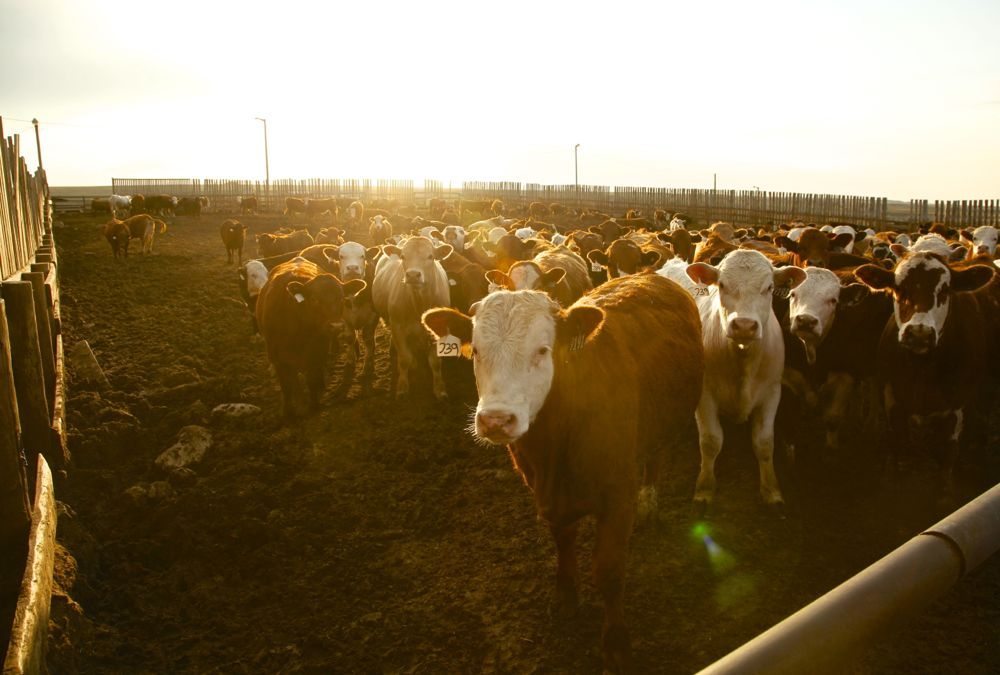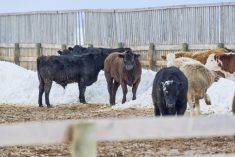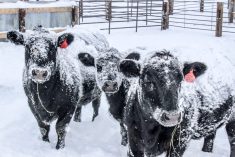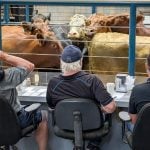Compared to late December, western Canadian yearling prices were quoted $6-$8 higher on average; however, fancier, lower flesh packages in the 850- to 900-lb. category were $10-$12 higher. Calf markets were quite variable. Early in the week, calf prices were relatively unchanged but markets were up $3-$6 by Friday.
Ontario buyers were extremely aggressive last week with “just get ’em” type orders on higher-quality cattle. Ontario corn is priced at $7.50 a bushel, whereas imported U.S. corn in southern Alberta is over $10.40/bu. Demand was also noted from south of the border. U.S. feeder markets appear to be trading at a sharp premium to Western Canada. The Prairies experienced colder temperatures last week which may have subdued buying interest from Alberta operators. The Alberta fed market was softer this week, with prices quoted at $162 f.o.b. the feedlot. Break-even pen closeout values are north of $175. If the feedlot didn’t buy its feed grains earlier, some break-evens are reported north of $180. There is a defensive risk sentiment from southern Alberta operators, given the tight feed grain supplies.
Read Also
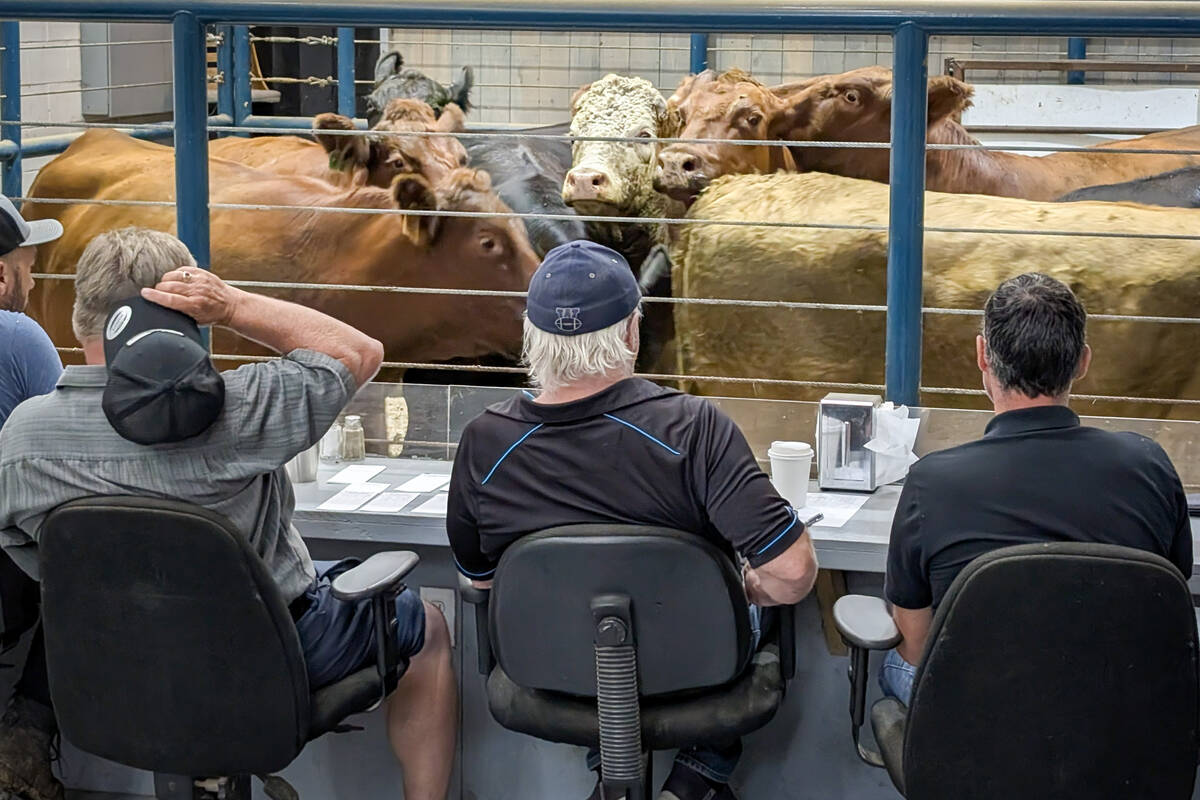
U.S. livestock: Cattle fall back as inventory hits 75-year low
Most Chicago Mercantile Exchange cattle futures fell on Friday. Lean hog contracts also dipped. Most-traded April live cattle futures settled…
Early in the week, Simmental-blended steers coming off heavier grain ration with full health records weighing a shade under 800 lbs. were quoted at $194 south of Edmonton. Late in the week, larger-frame medium- to lower-flesh black mixed steers weighing just over 900 lbs. were quoted at $201 in south-central Saskatchewan. Mixed steers weighing 875 lbs. were valued at $197 in the Red Deer region. Backgrounded mixed heifers weighing 850 lbs. were valued at $185 in central Saskatchewan. Northwest of Winnipeg, Charolais-based steers with medium butter on light grain ration averaging 840 lbs. were quoted at $199.
Calf prices were soft early in the week but ended on a firm tone. On Wednesday, Charolais steers on full health program that were weaned earlier in fall coming off silage light grain ration averaging 650 lbs. were reported at $208 east of Edmonton; similar-quality heifers weighing 610 lbs. were valued at $184 in the same region. In northwestern Manitoba, Angus weaned steers with unknown diet records but showing medium butter weighing 605 lbs. were reported at $219. In east-central Saskatchewan, black mixed steers weighing just over 500 lbs. reached up to $240 and similar-quality heifers averaging 505 lbs. were quoted at $201. Certain auction barns in Saskatchewan had larger volumes which attracted a sizeable crowd. Buyers appeared to feed off energy from one another, enhancing the market structure.
Beef demand is taking a backseat with the surge in COVID-19 Omicron variant cases. Models show that this outbreak should be a 30- to 45-day window. Retail prices were down from the previous week but remain sharply above year-ago levels. Recent jobs data on both sides of the border are positive for beef demand moving forward. There is a backlog of fed cattle in Alberta which will last until March. Fed cattle prices should make fresh 52-week highs during the spring.
— Jerry Klassen is president and founder of Resilient Capital, specializing in proprietary commodity futures trading and market analysis. Jerry consults with feedlots on risk management and writes a weekly cattle market commentary. He can be reached at 204-504-8339 or via his website at ResilCapital.com.

